November 18 stands as one of history’s most eventful days, witnessing the rise and fall of empires, groundbreaking discoveries, and moments that shaped our modern world across centuries of human achievement.

Politics and Government Events on November 18
1901 – Hay-Pauncefote Treaty Signed
Britain and the United States signed the Hay-Pauncefote Treaty, nullifying the Clayton-Bulwer Treaty and withdrawing British objections to American control of a Panama canal. This diplomatic breakthrough cleared the path for American canal construction.
The treaty marked a decisive shift in Anglo-American relations toward cooperation rather than competition. Britain’s withdrawal from Central American canal politics demonstrated the changing balance of global power at the century’s dawn.
1905 – Prince Carl Becomes King Haakon VII of Norway
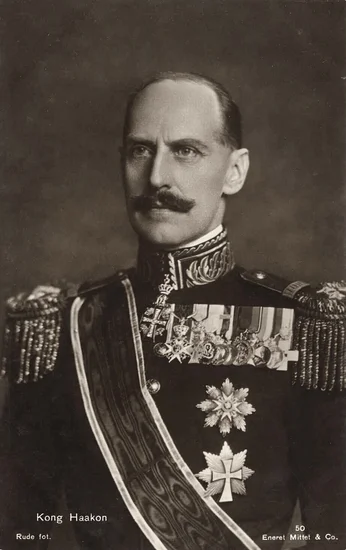
Prince Carl of Denmark ascended to the Norwegian throne as King Haakon VII, marking a new chapter in Norwegian independence. The Danish prince’s acceptance of the crown solidified Norway’s break from Sweden.
His reign would span over half a century, guiding Norway through two world wars and rapid modernization. The peaceful transition established constitutional monarchy as Norway’s enduring form of government.
1918 – Latvia Declares Independence from Russia
Latvia proclaimed its independence from Russia amid the chaos of World War I and the Russian Revolution. The Baltic nation seized the opportunity to break free from centuries of foreign domination.
The declaration launched a bitter war of independence against German, Russian, and Bolshevik forces. Latvia’s struggle for freedom would inspire similar movements across Eastern Europe in the war’s aftermath.
1961 – Kennedy Sends Military Advisors to Vietnam
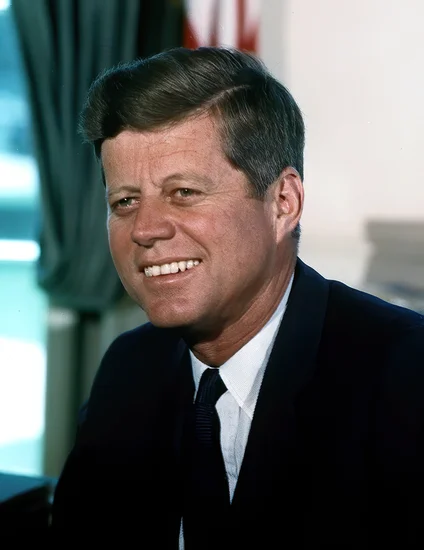
President John F. Kennedy dispatched 18,000 military advisors to South Vietnam, dramatically escalating American involvement in Southeast Asia. This decision transformed limited support into substantial military commitment.
The deployment marked a crucial turning point that would eventually lead to full-scale war. Kennedy’s advisors would become the foundation for America’s most controversial military engagement of the 20th century.
1993 – South African Constitution Approved
Twenty-one political parties in South Africa approved a new constitution, expanding voting rights and officially ending white minority rule. The historic agreement paved the way for democratic elections and majority governance.
The constitution enshrined human rights and established a framework for peaceful transition. This momentous decision transformed South Africa from apartheid state to rainbow nation virtually overnight.
Military and Naval History on November 18
1916 – Battle of the Somme Concludes
British Expeditionary Force commander Douglas Haig called off the First Battle of the Somme after four months of devastating warfare. The battle had cost over one million casualties for minimal territorial gains.
The Somme epitomized the brutal futility of trench warfare on the Western Front. Haig’s decision to end the offensive acknowledged the impossibility of breaking through German defenses with existing tactics.
1940 – Hitler and Ciano Discuss Greek Invasion
German leader Adolf Hitler met with Italian Foreign Minister Galeazzo Ciano to discuss Benito Mussolini’s disastrous invasion of Greece. The meeting revealed growing tensions within the Axis alliance over strategic coordination.
Italy’s military failures in Greece forced Germany to divert resources from other fronts. The discussions foreshadowed Hitler’s reluctant decision to rescue his ally through the Balkans campaign.
1943 – RAF Bombs Berlin
Four hundred and forty Royal Air Force planes bombed Berlin, causing light damage while killing 131 civilians and losing nine aircraft. The raid demonstrated both the reach and limitations of Allied strategic bombing.
The mission represented Britain’s determination to strike back at the German capital despite heavy losses. RAF crews faced fierce antiaircraft defenses and long-range fighter interception over the Nazi heartland.
1991 – Siege of Vukovar Ends
The Croatian city of Vukovar capitulated to the Yugoslav People’s Army after an 87-day siege during the Croatian War of Independence. The siege had reduced the historic city to rubble and claimed thousands of lives.
Vukovar’s fall became a symbol of Croatian suffering and resistance during the Yugoslav Wars. The siege’s brutality shocked international observers and galvanized support for Croatian independence.
Science and Discovery Milestones on November 18
1963 – First Push-Button Telephone Service
The first push-button telephone system went into service, revolutionizing telecommunications technology. Touch-tone dialing replaced rotary systems with electronic signals that enabled faster, more reliable connections.
The innovation laid groundwork for modern digital communications and automated phone systems. Push-button technology would eventually enable everything from automated banking to computer modems.
1978 – F/A-18 Hornet First Flight
The McDonnell Douglas F/A-18 Hornet made its maiden flight at the Naval Air Test Center in Maryland. The twin-engine fighter represented a new generation of versatile combat aircraft.
The Hornet’s successful test flight launched one of the most successful fighter programs in aviation history. Its combination of air-to-air and air-to-ground capabilities would define naval aviation for decades.
2013 – NASA Launches MAVEN to Mars
NASA successfully launched the MAVEN probe toward Mars to study the planet’s upper atmosphere and climate history. The mission sought to understand how Mars lost its atmosphere and water over billions of years.
MAVEN’s sophisticated instruments would reveal crucial details about Martian atmospheric evolution. The probe’s discoveries would reshape scientific understanding of planetary climate change and habitability.
Cultural and Arts Events on November 18
1928 – Steamboat Willie Debuts

The animated short “Steamboat Willie” premiered as the first fully synchronized sound cartoon, launching Mickey Mouse to international stardom. Walt Disney’s creation revolutionized animation by perfectly matching sound to visual action.
The cartoon’s success established Disney as animation’s premier studio and Mickey Mouse as America’s most beloved character. “Steamboat Willie” demonstrated animation’s potential as sophisticated entertainment rather than mere novelty.
1985 – Calvin and Hobbes Debuts
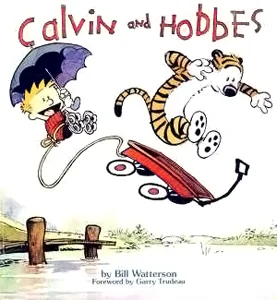
The first “Calvin and Hobbes” comic strip appeared in ten newspapers, introducing readers to Bill Watterson’s philosophical boy and his stuffed tiger. The strip combined childhood wonder with sophisticated commentary on modern life.
Watterson’s creation would become one of the most beloved comic strips in history, winning numerous awards and inspiring millions of readers. “Calvin and Hobbes” elevated the comic strip medium to high art.
1991 – Hostages Released in Lebanon
Shiite Muslim kidnappers in Lebanon released Anglican Church envoys Terry Waite and Thomas Sutherland after years of captivity. Their freedom marked a significant breakthrough in resolving the hostage crisis that had plagued the Middle East.
The releases demonstrated the power of patient diplomacy and international pressure. Waite and Sutherland’s ordeal highlighted the personal costs of Middle Eastern conflicts on innocent individuals.
Religious and Social Events on November 18
1978 – Jonestown Massacre

Jim Jones led his Peoples Temple to a mass murder-suicide in Jonestown, Guyana, claiming 918 lives including over 270 children. The tragedy shocked the world and exposed the dangers of cult manipulation.
The Jonestown massacre became synonymous with blind devotion and charismatic exploitation. Jones’s actions revealed how religious movements could become instruments of psychological control and ultimate destruction.
2003 – Massachusetts Legalizes Same-Sex Marriage
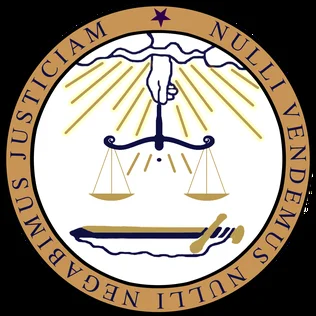
The Massachusetts Supreme Judicial Court ruled 4-3 that the state’s ban on same-sex marriage violated the constitution, making Massachusetts the first state to grant marriage equality. The landmark decision gave the legislature 180 days to change the law.
The ruling triggered a nationwide debate about marriage equality and civil rights. Massachusetts’s pioneering decision would inspire similar legal challenges across the United States and transform American society.
2012 – Pope Tawadros II Enthroned

Pope Tawadros II of Alexandria became the 118th Pope of the Coptic Orthodox Church, leading one of Christianity’s oldest communities. His enthronement occurred during a period of political turmoil in Egypt.
The new pope faced challenges from rising Islamic extremism and political instability. His leadership would prove crucial in protecting Egypt’s Christian minority during the Arab Spring’s aftermath.
Business and Economic Events on November 18
1993 – NAFTA Approved by House
The United States House of Representatives approved the North American Free Trade Agreement, creating the world’s largest free trade zone. The controversial vote followed intense lobbying by business groups and unions.
NAFTA’s approval transformed North American commerce by eliminating most trade barriers between the United States, Canada, and Mexico. The agreement would reshape manufacturing, agriculture, and labor markets across the continent.
1970 – Nixon Requests Cambodia Aid
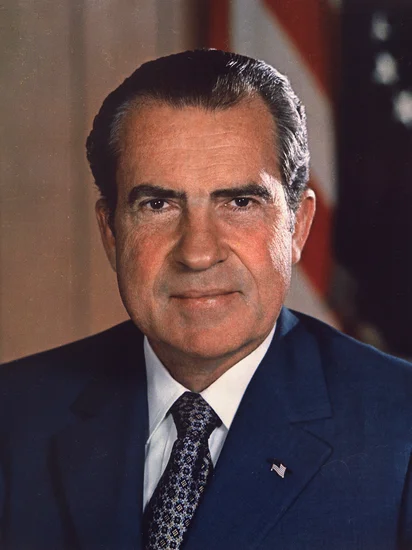
President Richard Nixon asked Congress for $155 million in supplemental aid for the Cambodian government, expanding American involvement in Southeast Asia. The request reflected growing concerns about communist expansion in the region.
The aid package represented a significant escalation of American financial commitment to Southeast Asian allies. Nixon’s request would contribute to the broader controversy surrounding American foreign policy in the region.
1947 – Ballantyne’s Department Store Fire
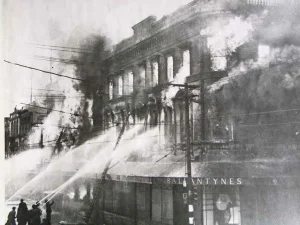
The Ballantyne’s Department Store fire in Christchurch, New Zealand, killed 41 people in the country’s worst fire disaster. The tragedy exposed serious deficiencies in building safety codes and emergency procedures.
The disaster led to major reforms in fire safety regulations and building design standards. New Zealand’s response to the tragedy became a model for improving commercial building safety worldwide.
Transportation and Infrastructure on November 18
1903 – Panama Canal Treaty Signed

The United States and Panama signed the Hay-Bunau-Varilla Treaty, granting America exclusive rights over the Panama Canal Zone. The agreement enabled construction of the world’s most important waterway.
The treaty established American control over the canal zone in perpetuity while guaranteeing Panama’s independence. This diplomatic success would facilitate global maritime commerce and establish American dominance in Central America.
1996 – Channel Tunnel Fire
A fire erupted on a train traveling through the Channel Tunnel from France to England, causing injuries and damaging 500 meters of tunnel. The incident tested emergency procedures in the world’s longest undersea tunnel.
The fire demonstrated both the tunnel’s vulnerability and the effectiveness of its safety systems. Repairs and improved protocols would enhance the tunnel’s safety for millions of future passengers.
2020 – Utah Monolith Discovered

State biologists discovered the mysterious Utah monolith, a metal structure built sometime in 2016 in a remote desert location. The gleaming pillar sparked worldwide fascination and speculation about its origins.
The monolith’s discovery in the age of social media created a global phenomenon and inspired similar installations worldwide. Its mysterious appearance captured public imagination during the COVID-19 pandemic’s isolation.
Sports and Recreation on November 18
1999 – Texas A&M Bonfire Collapse
The traditional Aggie Bonfire at Texas A&M University collapsed during construction, killing 12 students and injuring 27 others. The tragedy ended a cherished 90-year tradition and shocked the college community.
The collapse prompted extensive investigations into safety procedures and structural engineering. Texas A&M’s response to the disaster became a model for university crisis management and student safety protocols.
1987 – King’s Cross Fire

Thirty-one people died in a fire at London’s King’s Cross St. Pancras underground station, the city’s busiest subway hub. The disaster exposed serious safety deficiencies in the London Underground system.
The tragedy led to comprehensive reforms in fire safety, emergency procedures, and station design. King’s Cross became a catalyst for modernizing public transportation safety standards worldwide.
1929 – Grand Banks Earthquake
A magnitude 7.2 submarine earthquake off Newfoundland’s coast broke 12 transatlantic telegraph cables and triggered a devastating tsunami. The disaster destroyed numerous communities on the Burin Peninsula.
The earthquake demonstrated the vulnerability of early telecommunications infrastructure to natural disasters. The tragedy prompted improvements in submarine cable design and tsunami warning systems.
Notable Births on November 18
1901 – George Gallup Born

American statistician George Gallup entered the world, destined to revolutionize public opinion polling. His innovative sampling methods would transform political campaigns and market research.
Gallup’s scientific approach to measuring public opinion made him one of the most influential figures in modern democracy. His polling techniques would become essential tools for politicians, journalists, and business leaders worldwide.
1923 – Alan Shepard Born

American astronaut Alan Shepard was born, future commander of the first American manned spaceflight. His pioneering journey would inspire a generation of space explorers and cement American determination in the space race.
Shepard’s historic flight aboard Freedom 7 made him a national hero and symbol of American technological prowess. His later Moon landing during Apollo 14 would cap an extraordinary career in space exploration.
1939 – Margaret Atwood Born

Canadian author Margaret Atwood was born, destined to become one of literature’s most influential voices. Her dystopian novels would capture the zeitgeist of multiple generations and spark important social conversations.
Atwood’s works, particularly “The Handmaid’s Tale,” would gain renewed relevance in contemporary political discourse. Her prescient vision of authoritarian futures would prove uncomfortably prophetic in the digital age.
1942 – Linda Evans Born

American actress Linda Evans was born, future star of television’s golden age. Her performances in “Dynasty” and “The Big Valley” would make her one of television’s most recognizable faces.
Evans’s career would span decades of changing entertainment landscapes, from classic westerns to primetime soap operas. Her glamorous presence helped define television drama during its most influential decades.
1968 – Owen Wilson Born

American actor Owen Wilson was born, future star of comedy films and distinctive voice of animated characters. His laid-back persona and improvisation skills would make him one of Hollywood’s most beloved comic actors.
Wilson’s collaborations with directors like Wes Anderson would help define indie comedy aesthetics. His transition from indie darling to mainstream star would demonstrate the power of authentic comic timing.
1975 – David Ortiz Born

Dominican-American baseball player David Ortiz was born, future slugger who would become synonymous with Boston Red Sox success. His clutch hitting would help end the team’s 86-year World Series drought.
Ortiz’s leadership and performance in crucial moments would make him one of baseball’s most beloved figures. His post-career advocacy for social justice would extend his influence beyond the baseball diamond.
Notable Deaths on November 18
1922 – Marcel Proust Dies
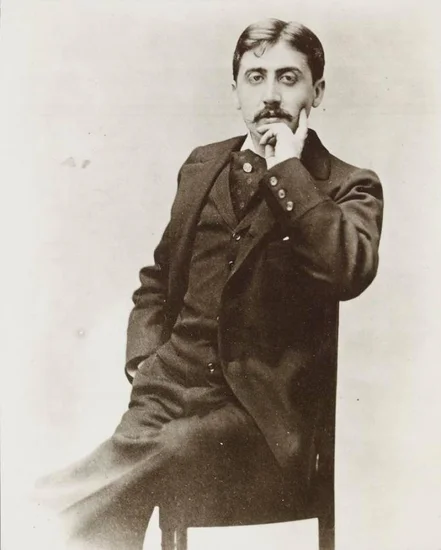
French author Marcel Proust died, leaving behind his monumental work “In Search of Lost Time.” His innovative narrative techniques and psychological insights revolutionized modern literature.
Proust’s exploration of memory, time, and consciousness influenced countless writers and thinkers. His masterpiece remains one of literature’s greatest achievements, continuing to inspire readers more than a century later.
1962 – Niels Bohr Dies

Danish physicist Niels Bohr died, leaving behind revolutionary contributions to quantum mechanics and atomic theory. His work earned him the Nobel Prize and fundamentally changed scientific understanding of matter.
Bohr’s atomic model and complementarity principle became cornerstones of modern physics. His mentorship of younger scientists helped establish Copenhagen as a center of theoretical physics innovation.
1978 – Jim Jones Dies
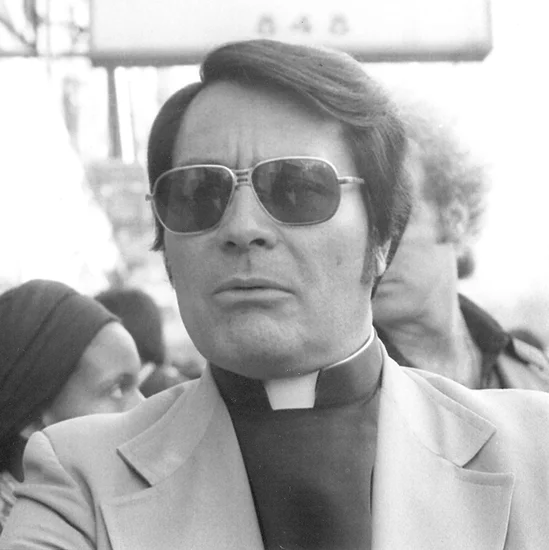
American cult leader Jim Jones died in the Jonestown massacre, ending a reign of manipulation and control that claimed 918 lives. His death concluded one of the most tragic chapters in American religious history.
Jones’s transformation from social activist to dangerous cult leader demonstrated the corrupting influence of unchecked power. His legacy serves as a warning about charismatic leadership and religious extremism.
1994 – Cab Calloway Dies

American singer and bandleader Cab Calloway died, ending an era of jazz entertainment and innovation. His energetic performances and scat singing made him one of the most dynamic performers of the swing era.
Calloway’s influence extended far beyond music, helping to break down racial barriers in entertainment. His flamboyant style and musical virtuosity inspired generations of performers across multiple genres.
2016 – Denton Cooley Dies
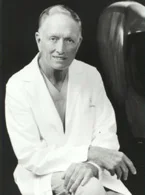
American cardiac surgeon Denton Cooley died, leaving behind a legacy of medical innovation and life-saving procedures. His pioneering work in heart surgery saved thousands of lives and advanced medical science.
Cooley’s surgical techniques and artificial heart development pushed the boundaries of what was medically possible. His contributions to cardiac surgery helped establish Houston as a world center for medical innovation.
2024 – Arthur Frommer Dies
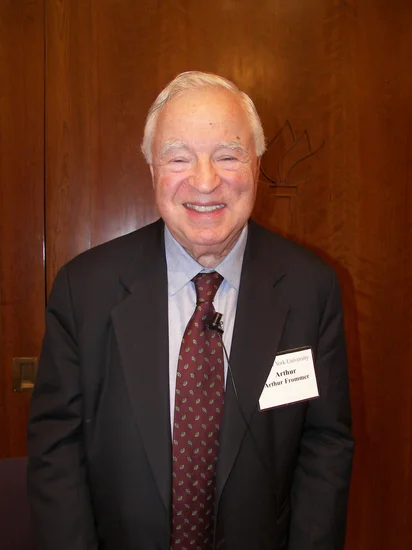
American travel writer Arthur Frommer died, ending a career that democratized international travel for millions of Americans. His guidebooks made world travel accessible to budget-conscious adventurers.
Frommer’s “Europe on 5 Dollars a Day” revolutionized tourism by proving that travel didn’t require wealth. His practical advice and cost-saving tips opened the world to an entire generation of young travelers.
Holidays and Observances on November 18
Independence Day (Morocco)
Morocco celebrates its independence from France and Spain gained in 1956. The holiday commemorates the end of colonial rule and the restoration of Moroccan sovereignty after decades of foreign control.
The celebration marks Morocco’s successful transition from protectorate status to independent nation. King Mohammed V’s return from exile symbolized the country’s renewed dignity and self-determination.
National Day (Oman)
Oman observes its National Day commemorating the country’s rich heritage and modern achievements. The holiday celebrates Omani culture, traditions, and the sultanate’s progress under enlightened leadership.
The day features traditional music, dance, and displays of Omani craftsmanship and hospitality. Citizens reflect on their nation’s journey from ancient trading empire to modern, prosperous state.
Proclamation Day of the Republic of Latvia

Latvia celebrates the proclamation of independence from Russia in 1918. The holiday honors the courage of Latvian leaders who declared sovereignty amid the chaos of World War I.
The day commemorates Latvia’s struggle for freedom and national identity after centuries of foreign domination. Latvians celebrate their unique language, culture, and democratic traditions with pride and determination.
Remembrance Day of Vukovar (Croatia)
Croatia observes Remembrance Day honoring the sacrifice of Vukovar during the 1991 siege. The day commemorates the city’s destruction and the heroism of its defenders during the Croatian War of Independence.
The observance serves as a solemn reminder of war’s human cost and the price of freedom. Vukovar’s reconstruction symbolizes Croatian resilience and determination to preserve national sovereignty.
